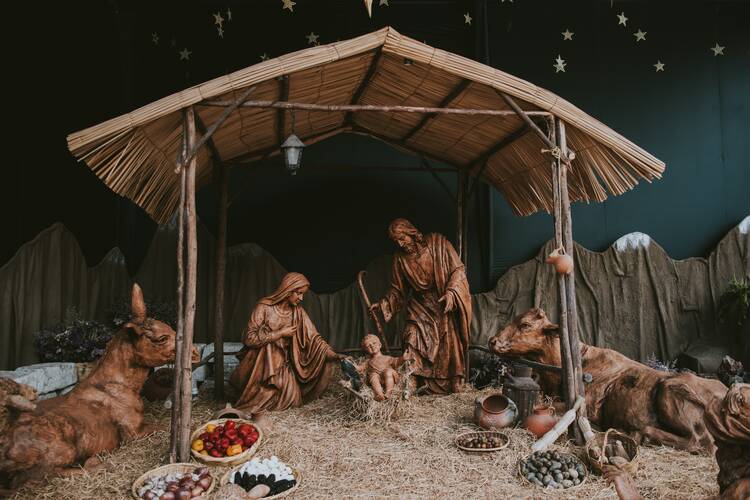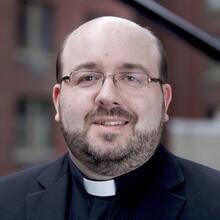A Reflection for the Feast of the Nativity of Mary
“Joseph, son of David, do not be afraid…” (Lk 1:20)
When we celebrate a feast like the Nativity of Mary, marking an event such as Mary’s own birth that must have happened but that is not independently narrated in Scripture, the lectionary selections for the readings get a bit figurative. The readings “rhyme with” the event being celebrated rather than describing it directly.
Among the options for the readings today, we have a first reading from Micah that prophesies Bethlehem as the origin for the “ruler in Israel; whose origin is from of old” even though Bethlehem itself is “too small to be among the clans of Judah.” And a Gospel option for today, if someone opts for the longer form, is Matthew’s version of the genealogy of Jesus, leading from Abraham up to Joseph. (The fact that Jesus is not biologically descended from Joseph didn’t bother Matthew when he put the genealogy together, and I recommend that it not bother us either.)
Often, when we hear this genealogy some time in Advent, a homilist will point out that even though most of the genealogy is a cascade of “became the father of,” there are four women named in the list before we get to Mary. And those four are all connected to situations where God’s providence works through complicated circumstances. They include Tamar, whose long and strange story is told in Genesis 38; Rahab, who assisted the Israelites sent to scout in the city of Jericho; Ruth, who chose fidelity to her adopted people and mother-in-law Naomi; and the unnamed wife of Uriah, who through David’s sin and betrayal of her husband becomes the mother of Solomon.
So one reading of this genealogy, where Mary becomes the fifth woman named, is that she stands at another providential intervention in the history of Israel and David’s line, where God will uphold the covenant in an unexpected way. But that reading, of course, benefits from hindsight’s perfect vision.
The challenge to us is fidelity in small things, not knowing in advance where our Bethlehems are, and fidelity in complicated things, not knowing in advance which seeming detours from the plan are going to wind up recorded as pivotal moments.
But for the people in those moments, God’s fidelity had to be trusted as it happened, not just celebrated in hindsight—which is why the angel has to say “Joseph, son of David, do not be afraid to take Mary your wife into your home.” Perhaps for Mary and Joseph, the memory of God’s complicated yet fruitful fidelity to Israel and the line of David was a reassurance that God was being similarly faithful to them in frightening and confusing circumstances.
There were lots of places other than Bethlehem “too small to be among the clans of Judah”; there are many other complexities in the line from Abraham to David to Joseph that did not merit an interruption in Matthew’s genealogy and may not have merited recording at all. The ones we know about are not just because they were foreordained, prophesied and planned out by God’s providence, but also because they were the moments when confused and frightened people, in the midst of these events, trusted God and muddled through even complicated and sometimes sinful circumstances without knowing in advance how God’s fidelity would work things out.
Or to say this another way: As much as faith in providence and “God having a plan” may be a comfort, it is also a challenge, because God’s plan is bold and strange enough that only hindsight has a chance to see it clearly. And the challenge to us is fidelity in small things, not knowing in advance where our Bethlehems are, and fidelity in complicated things, not knowing in advance which seeming detours from the plan are going to wind up recorded as pivotal moments.
As we celebrate Mary’s birth today, may she and Joseph be a model of such faith and courage for us, and may we hear with them the angel’s comfort and challenge: Do not be afraid.








